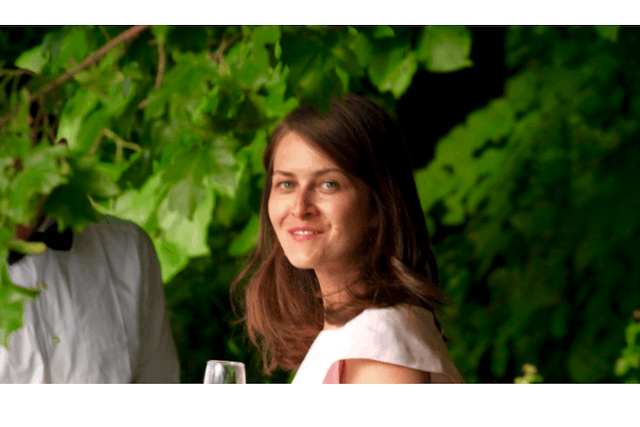Jess Bauldry: You are participating in the fourth Homeward Bound expedition to Antarctica, an initiative encouraging women to lead people towards a more sustainable way of living. What will you be doing during the expedition?
Georgiana Sidor: The Homeward Bound expedition brings together a truly extraordinary and diverse group of women leaders from all over the world: researchers, academicians, science communicators, doctors, policy makers etc, all experts in their respective fields. The only things we all have in common is a background in Stemm [science, technology, engineering, mathematics and medicine] and our commitment to be actively involved in our respective lines of work in the decision making as it relates to the state of the planet.
During the expedition, we will go through trainings regarding legacy-minded leadership, high impact visibility, as well as science lectures to better understand the unique ecosystem we are entering: Antarctica. As one of the few participants from the business side, my goal throughout this expedition is to understand how the business can community help more in solving the environmental crisis. With that in mind, I will spend the next three weeks working with the fellow Homeward Bound leaders to assess what do we need to change in the way we operate as a society in order to better protect the environment.
How and when did you interest in sustainability begin?
As an avid mountain climber--I summitted Kilimanjaro in 2018, did Tour du Montblanc in 2017, Huang Shuan in 2016, Yosemite in 2015--I have always treasured being in the middle of nature. However, I started to become professionally interested in the relationship between businesses and the environment during my MBA at Harvard Business School when I advised a venture capitalist firm to invest in an MIT born startup called LiquiGlide.
This startup had patented a “last drop” surface treatment that enabled industries which needed to transfer fluids from one tank to the other (e.g. paint manufacturers), to minimise the waste fluid that remained on the walls of the old tank. I found this application particularly interesting because it needed fewer chemicals in the manufacturing process, minimising the negative impact on the environment, and decreasing the manufacturing costs.
In other words, protecting the environment did not need to come at the expense of profits and in fact, they went hand in hand. That specific experience got me thinking that if we can create more such opportunities where both sides win, then the relationship between the business community and the environment can be further strengthened to everyone’s advantage.

Protecting the environment cannot be achieved without constructively engaging all stakeholders, says Sidor, pictured. Photo: Georgiana Sidor.
What have been the highlights of the journey so far?
By far the biggest highlight has been meeting and learning from fellow participants. To give a few examples, I spent an hour yesterday learning from a 23-year-old Kiwi woman who is working with the New Zealand government as well as with farmers to create environmental protection policies with regards to agricultural usage of land. Similarly, today I met an American woman now currently based in Kenya, who has been running an NGO that has protected lions for the last 15 years and thus contributed to the lion population increasing five-fold over the same period.
Hearing about her work, which involved her living extensively in a tent in some of the most remote parts of Kenya, provided some very valuable lessons around how to gather stakeholders with conflicting interests (Masaai community, Kenyan government, tourism industry) around one common goal: protecting the lions. Overall, I feel immensely privileged to share these three weeks with the Homeward Bound fellow leaders and hope to learn as much as possible from each one of them.
What actions have you, or do you hope to lead in Luxembourg to help ensure a more sustainable future for the planet?
To drive the massive changes we need to avoid reaching the tipping point. Protecting the environment cannot be achieved without constructively engaging all stakeholders, including the business community. Traditionally, the world has been looking to businesses to minimise the negative impact on the environment through sustainability initiatives or through legislation-imposed fines that hit the businesses’ bottom lines. This approach created a clash between the environment and the business community because it put the two parties in adversarial positions.
I believe a more constructive approach is to assess the specific super-powers each business has (i.e. the unique differentiator that the market values them for) and use these super-powers to solve the environmental crisis. With that in mind, before I set out for Antarctica I ran a survey with the business leaders in my network (Harvard classmates, Amazon colleagues, friends and family from Romania). The questions I asked were focused on (1) which of your respective industry’s superpowers can be used in solving the environmental crisis? (2) what would it take for that to happen? and (3) what would it take for you personally to be actively involved in this endeavour?
The answers validated my optimism around our ability to work together in protecting nature, but they also highlighted a common theme regarding problem solving. While everyone acknowledges the effects of the global warming, the problem is so complex and broad, that it is difficult for business leaders to fully understand where we can help and whether we can make a real difference. As a result, the need to break the problem into small pieces that each industry/business can choose to focus on. My goal personally is to work on that, so that ultimately the business community is able to take its rightful place in environmental discussions.
